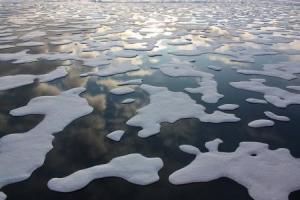By Tamar Najarian G+
What Experts Say About Climate Change
The Intergovernmental Panel on Climate Change (IPCC) released its latest report on March 31, 2014, presenting impacts, vulnerabilities, and adaptations to climate change. There are 310 authors and review editors in the group which has prepared the report, wherein, alongside the issue of health, they examined natural and managed resources (eg, fresh water, coastal systems, and food production), human settlements, and other aspects of wellbeing such as security and livelihoods. The Lancet online journal presents excerpts from the report, as well as introducing some of the critique it garnered. According to the experts in the field, climate change will currently mainly exacerbate health problems that already exist, and the largest risks are to populations whose health and wellbeing are most affected by the present-day climate. Furthermore, multiple other problems were outlined that would be a direct consequence of weather change. These include:
- Crop failures leading to malnutrition
- Shifting disease patterns
- Heat waves affecting body chemistry
- Floods leading to bodily harm
- Fires destroying necessary survival basic needs
- Droughts leading to displacement of whole populations
- Unstable natural adaptations leading to possible spread of disease and/or malnutrition
- Food-borne infections spreading to previously uninfected regions
The most worrisome of the scenarios which are extremely likely to occur in the event of climate change, versus no change at all, are:
- Greater risk of injury, disease, and death due to more intense heat waves and fires
- Increased risk of undernutrition resulting from diminished food production in poor regions
- Lost work capacity and reduced labor productivity in vulnerable populations
- Increased risks of food- and water-borne diseases, as well as vector-borne diseases
According to the report, “Impacts on health will be reduced, but not eliminated, in populations that benefit from rapid social and economic development, particularly among the poorest and least healthy groups.” As such, it is an impediment to improvements in health around the world, affecting the poorest populations the most.
Another interesting fact to consider is that according to the statistics presented in the report, 7% of the global burden of disease was due to inhalation of these air pollutants in 2010. One must wonder what the percentage would be four years after the fact, when pollutants have continued to be inhaled by the general population.
Other Reasons to Beware Climate Change
According to previous articles published on EmaxHealth by specialists in the field, climate change could have dire effects on health through:
- Releasing 30,000 year old diseases that had been frozen in permafrost
- Food safety will be compromised with the increase of toxic algae in warm waters
- Allergy and asthma season is prolonged
- Heat waves could become devastating
All in all, as much as some regions may enjoy more warm weather and others the prolonging of the cold, climate change is never good for either the environment or the health of the world’s living things.


























































